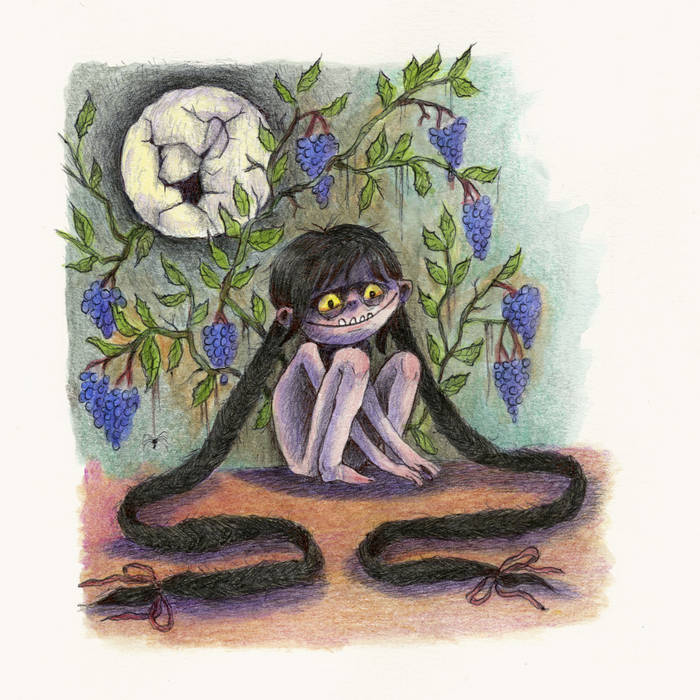Sally Rooney’s first novel cements her signature witty and intimate dialogue while centering uniquely damaged characters. Her blunt way of delving into the darker aspects of the human condition is unmatched, making it a must-read before the television adaptation airs in May.
Picking up a Sally Rooney novel for the first time can be visually off-putting. The fact that there are no quotation marks around the dialogue makes for a slight learning curve. It’s a trademark of hers, most likely birthed out of the speed at which she gets her words onto paper. Rooney’s writing process seems to consume her completely. She tells The Guardian that the first draft of “Conversations With Friends,” although incredibly rough, only took her three months to complete.
Of course, it took much longer for her story to eventually grace bookshelves, but once it did it became abundantly clear that Rooney had a knack for taking seemingly mundane moments and making them deeply engaging. It is easy to start appreciating the lack of punctuation, which eventually feels unnecessary, and consequently tear into the book with the same obsessive nature in which she created it. “Conversations With Friends” begins with her hypnotic style, and it only takes a few minutes for readers to become captivated by the fast-paced dialogue and be fully immersed in the perspective of Frances.
21-year-old Frances is a mild, dark, and attentive personality. She performs spoken word poetry with her best friend and ex-girlfriend — Bobbi — who is of a bolder and slightly narcissistic nature. They meet a famous photographer at one of their performances — Melissa — and quickly become intertwined in the lives of the photographer and her husband, Nick. While Bobbi gravitates towards Melissa, Frances finds herself flirting with Nick over email and in public through subtle interactions. Before long, the two of them are involved in an affair that thins almost every one of their external relationships.
The most gripping part of the novel is not the relationships or the affairs, but simply the tone of the novel as a whole. Rooney shapes Frances’s thoughts paradoxically: both cold and deeply emotional. Everything is stated as a matter of fact, but her matter of fact is borderline pessimistic. Even in the most emotional states, she appears relatively numb, expressing emotions simply as passing thoughts and navigating the world in a rather passive way. The few glimpses of emotional action manifest themselves self-destructively and are impossible to turn away from.
It’s hard to not grow to love Frances, a girl who seems unaware of how desperately she desires it. She rolls the feeling between her teeth and lets it come off her tongue in the form of lust. Lust is an easier feeling for her to digest, as she finds desire to be easily swayed whereas love sits like a pit in her stomach. Love seems to come to her in complicated fashions. It’s hard to place a simple definition on something that comes from countless directions. She finds it temporary, abusive, consuming, and excitingly secretive. Rooney lays out many forms of love within the novel; most are ugly, but some are wonderfully pretty.
The book comments sharply on monogamy, and how these relationships can oftentimes become a breeding ground for jealousy. A person becomes more desirable the more other people seem to want them, and partners seem to revel in their “ownership” of another. It challenges tradition in this way, forcing the reader to confront any relationship within their own lives. It’s not often that we put active effort into analyzing the condition of relationships. Most of the time they are simply maintained without ensuring that they are healthy. It’s refreshing to come across any form of media that takes the rose-colored glasses off of its audience. This novel practically crushes it to shards under the precision and weight of every deliberately chosen word.
Class is also a persistent theme of the novel. Rooney declares herself a Marxist, many of her beliefs manifesting within the main characters themselves. Frances and Bobbi hold political beliefs that are incredibly far left-wing, communist even. While politics are not extensively elaborated upon, class relationships are. Frances finds herself alone in her struggle with finance as none of the people she surrounds herself with are ever limited by it. Rooney is brilliant at cultivating tension around the subject of money for characters who hold drastically different amounts of it.
Rooney being on board with the series coming to Hulu in May is enough of a promise for an incredible adaptation. For anyone interested in watching the show, I highly recommend reading the novel first. Questions intense enough to feel unshakeable at times will be demanded as she ponders desire and everything adjacent to it. It is a heavy journey, but ultimately a rewarding one.
Grade: A
Release Date: May 25, 2017
Television Adaptation: Expected May 2022
Image courtesy of Candid Orange.
Read It First: “Conversations With Friends”
Feb 21, 2022
3
0
About the Contributor

Jonathan Shlesinger, A&E Co-Editor
Jonathan is a fourth year psychology major and communications minor. He loves hiking, pickup spikeball, and can draw cows pretty well.
More to Discover










CBD Edibles • Apr 26, 2022 at 5:39 am
Thanks for talking about this book. It was just an incredible reading experience and I absolutely loved this book. In fact, I have emphasized a great deal in this book for myself and for gradually dealing with my growth as a person. There are many philosophical questions to which we all should look for answers within ourselves. I’m delighted, to be honest. As for monogamy as such, I can say that this should always be decided within the couple for their own mental health.
Roy M. Ahmed • Apr 15, 2022 at 8:31 am
The masterpiece “Conversations with Friends” appealed to me from the first reading so much that after starting to read the book, I recommended it to my friends the next day. It tells the story of Frances. She is 21 years old, and a student is studying at the college. Before buying the edition, I began searching for this creation because of an edusson review essay on discover more about the main character. I became impressed by the girl’s characteristics. Frances navigates a series of relationships that force her to confront her vulnerabilities for the first time. I like novels with observant, cerebral, compelling, and sharp teens.
Guha Sundaram • Feb 21, 2022 at 2:19 pm
Wonderfully written! Brings a lot of intrigue to the book and series!